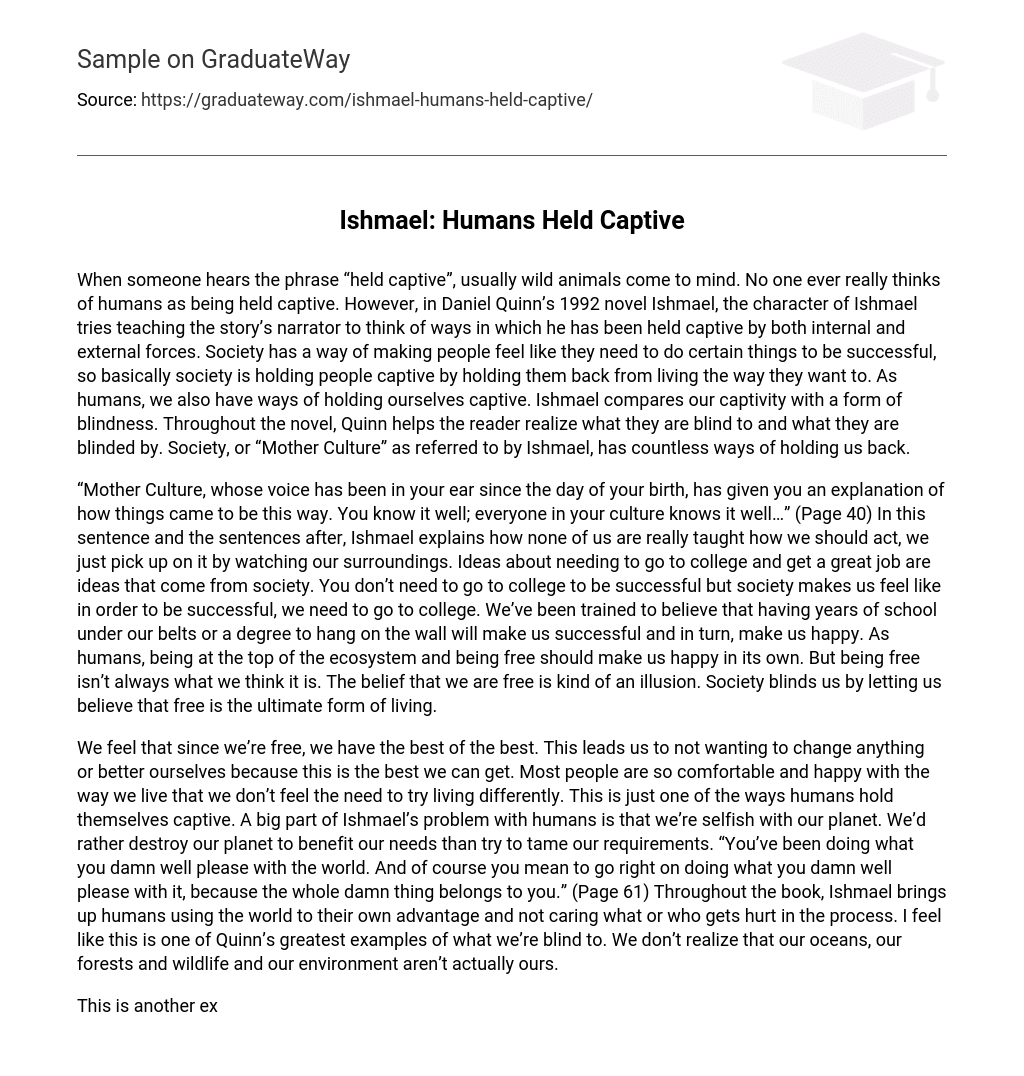The concept of being “held captive” typically brings to mind wild animals rather than humans. However, Daniel Quinn’s 1992 novel Ishmael challenges this assumption by urging the narrator to consider the ways in which they are held captive by internal and external forces. Society has a tendency to impose certain expectations that make individuals feel obligated to follow a prescribed path for success, effectively constraining them from living authentically. In addition, humans have their own ways of imprisoning themselves. Ishmael likens this self-imposed imprisonment to a kind of blindness. Throughout the novel, Quinn guides the reader in uncovering the aspects they are blind to and those that blind them. Society, often referred to as “Mother Culture” by Ishmael, employs numerous tactics to hinder personal growth and progress.
According to Ishmael, our understanding of how things came to be is shaped by “Mother Culture,” who has been influencing us since birth. We are not explicitly taught how to behave; instead, we pick up societal ideas by observing our surroundings. Society promotes the notion that success requires a college education and a prestigious job, even though this is not necessarily true. We have been conditioned to believe that academic achievements and degrees are essential for success and, consequently, happiness. However, as humans, we should find happiness in our position as the dominant species and our freedom. Unfortunately, this freedom is not always as true as it seems, as society deceives us into believing that it defines the ultimate form of existence.
The notion that freedom leads us to resist change or self-improvement because we believe what we currently have is the best possible, traps us. Many individuals are so comfortable and satisfied with our current way of life that they do not see the need for alternative ways of living. Ishmael points out this human selfishness towards our planet as he criticizes how instead of regulating our desires, we prefer damaging the Earth to fulfill our own needs. Throughout the book, Ishmael highlights how humans exploit the world without considering consequences for others or the environment. Quinn’s powerful example serves as a reminder that our oceans, forests, wildlife, and environment do not actually belong to us; yet we continue to act as if they do.
This passage highlights the belief that humans consider themselves superior to other beings in the ecosystem and exploit the world because they believe it is their possession. Despite acknowledging that our actions are causing habitat destruction and excessive resource consumption, we fail to take any action to stop these destructive behaviors. As a result, we harm our own world without realizing that we depend on it. This leads us into a harmful cycle that seems irreversible. Ishmael, the character in the book, emphasizes multiple times that it is solely up to us to fix the issues within ourselves. If more people read this book, a greater number of individuals would realize the need for change. I strongly advocate for including Ishmael in various educational curricula as it has universal themes applicable to subjects like philosophy, psychology, and English courses. Reading Ishmael has transformed my worldview, an experience everyone who is easily influenced should seek after. Consequently, I am now able to see beyond societal norms and regulations rooted in ignorance and no longer blinded by how I was taught to live.





